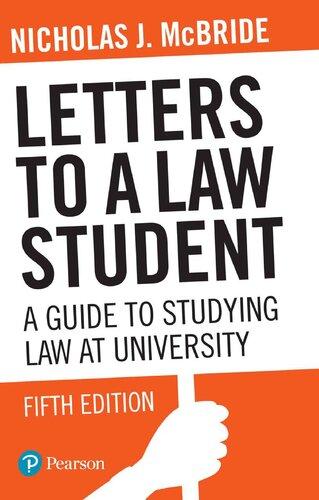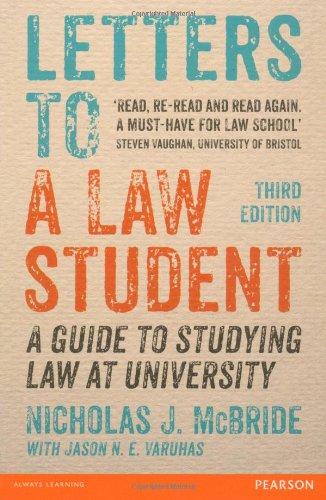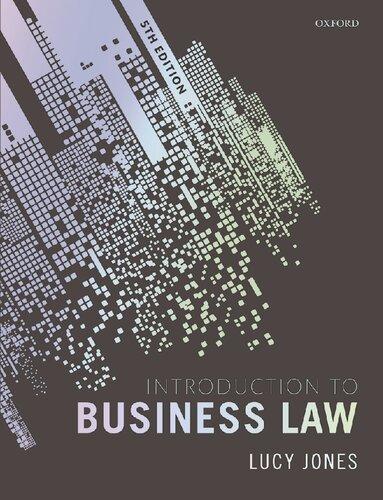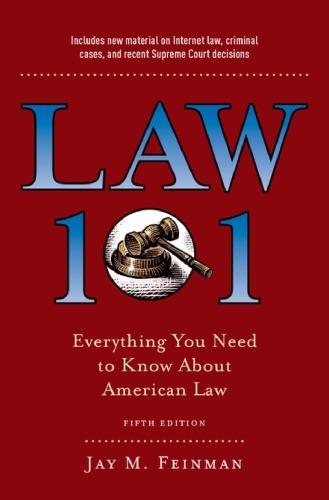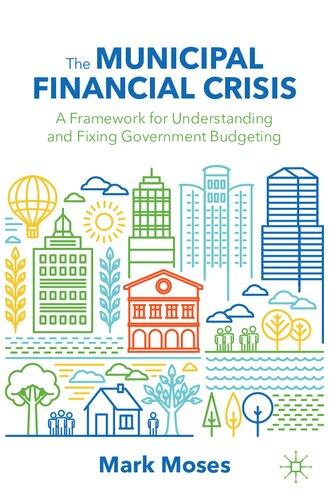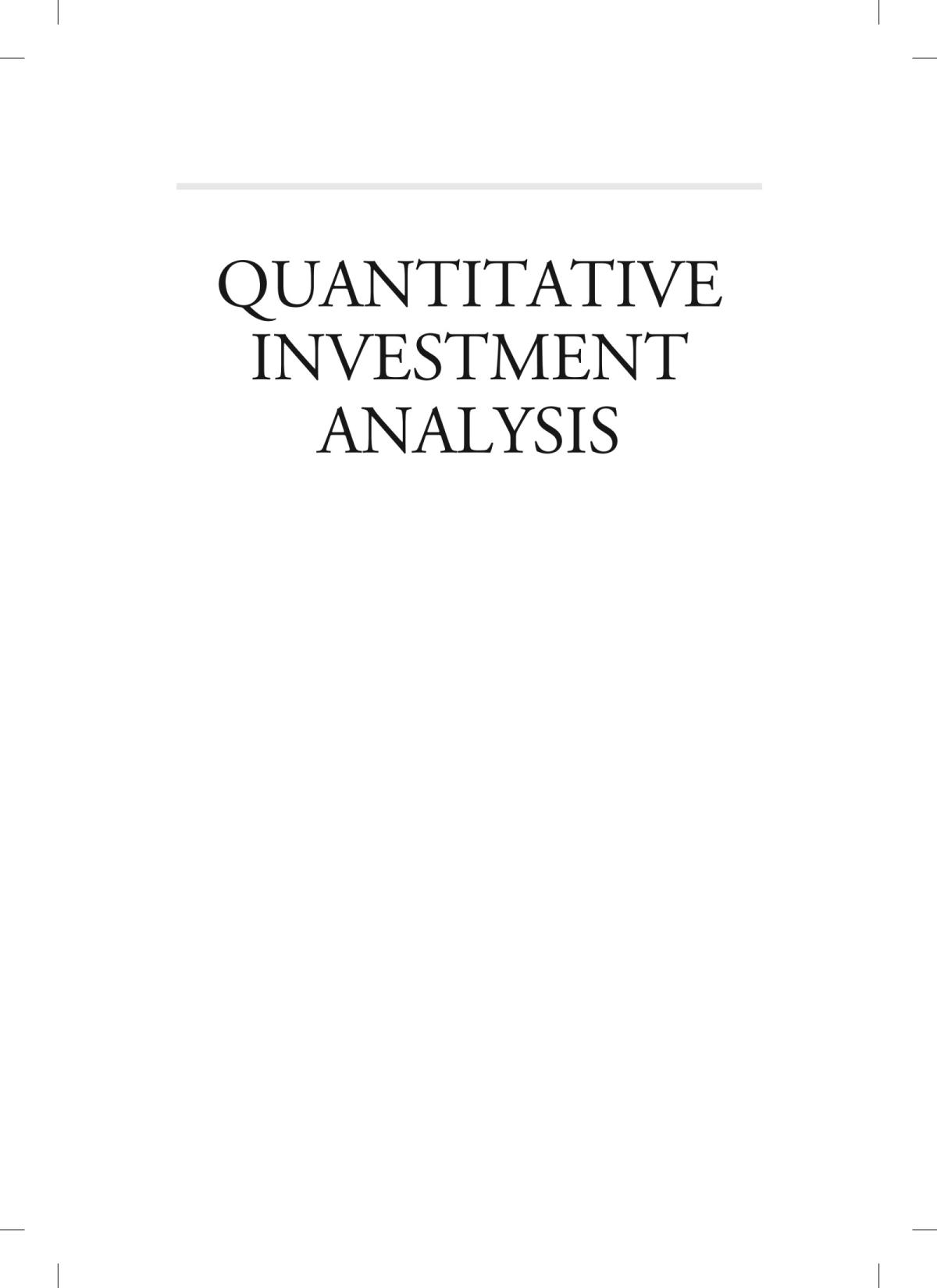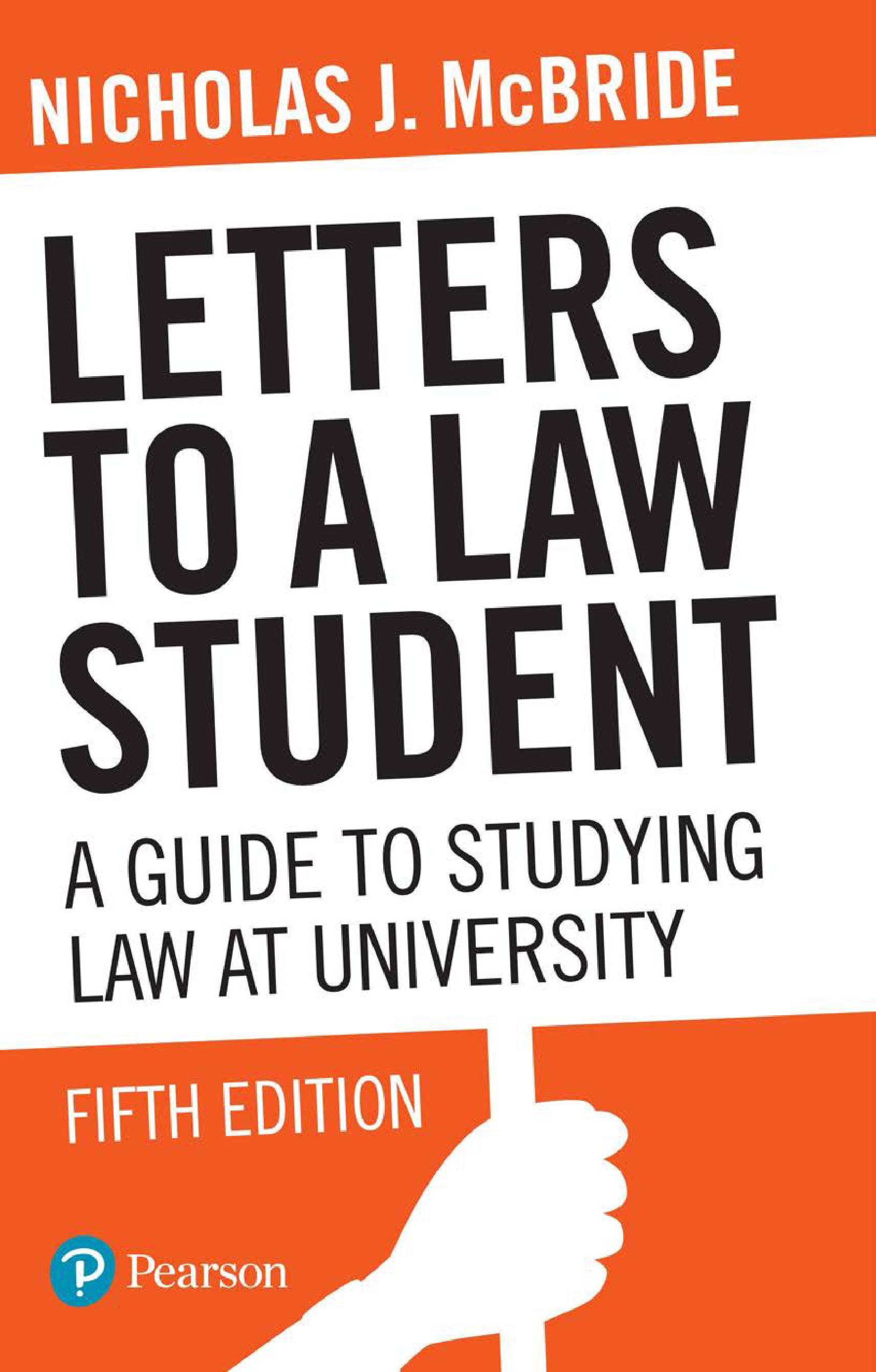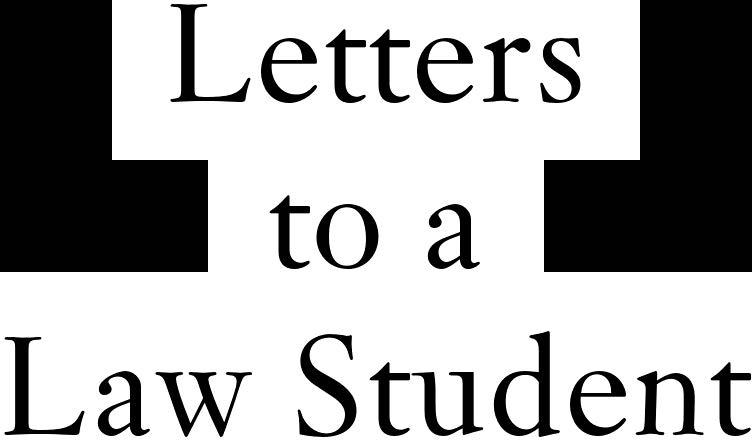The
https://ebookmass.com/product/the-barn-an-extraordinary-true-storydavid-hill/
ebookmass.com
Pearson
At Pearson, we have a simple mission: to help people make more of their lives through learning.
We combine innovative learning technology with trusted content and educational expertise to provide engaging and effective learning experiences that serve people wherever and whenever they are learning.
From classroom to boardroom, our curriculum materials, digital learning tools and testing programmes help to educate millions of people worldwide- more than any other private enterprise.
Every day our work helps learning flourish, and wherever learning flourishes, so do people.
To learn more, please visit us at www.pearson.com/uk
Fifth edition
KAO Two
KAO Park
Harlow CM17 9NA
United Kingdom
Tel: +44(0)1279 623623
Web: www.pearson.comluk
First published 2007(print)
Second edition published 2010(print)
Third edition published 2014(print and electronic)
Fourth edition published 2018(print and electronic)
Fifth edition published 2022(print and electronic)
©Pearson Education Litnited 2007, 2010(print)
©Pearson Education Litnited 2014, 2018, 2022(print and electronic)
The rights of NicholasJ. McBride andJason N.E. Varuhas to be identified as authors of this work have been asserted by thetn in accordance with the Copyright, Designs and Patents Act 1988.
The print publication is protected by copyright. Prior to any prohibited reproduction, storage in a retrieval systetn, distribution or transmission in any form or by any means, electronic, mechanical, recording or otherwise, permission should be obtained frotn the publisher or, where applicable, a licence permitting restricted copying in the United Kingdom should be obtained frotn the Copyright Licensing Agency Ltd, Barnard's Inn, 86 Fetter Lane, London EC4A lEN.
The ePublication is protected by copyright and must not be copied, reproduced, transferred, distributed, leased, licensed or publicly performed or used in any way except as specifically pennitted in writing by the publishers, as allowed under the terms and conditions under which it was purchased, or as strictly permitted by applicable copyright law. Any unauthorised distribution or use of this text may be a direct infringetnent of the author's and the publisher's rights and those responsible tnay be liable in law accordingly.
Pearson Education is not responsible for the content of third-party internet sites.
ISBN: 978-1-292-37530-4(print)
978-1-292-37529-8(PDF)
978-1-292-37528-1(ePub)
British Library Cataloguing-in-Publication Data
A catalogue record for the print edition is available from the British Library
Library of Congress Cataloging-in-Publication Data
Names: McBride, Nicholas]., author. Varuhas,Jason, author.
Title: Letters to a law student I Nicholas McBride,Jason N.E. Varuhas. Description: Fifth edition. Harlow, England ; New York, NY : Pearson Education Limited, 2022. Includes bibliographical references and index.
Identifiers: LCCN 2021062507(print) LCCN 2021062508(ebook) ISBN 9781292375304(hardback) ISBN 9781292375281(epub) ISBN 9781292375298(pdD
Subjects: LCSH: Law students--England--Handbooks, manuals, etc. Law--Study and teaching--England.
Classification: LCC KD442 .M36 2022 (print) LCC KD442 (ebook) DDC 340.071I142--dc23Iengl20220131
LC record available at https:lllccn.loc.gov12021062507
LC ebook record available at https:lllccn.loc.gov12021062508
10 9 8 7 6 5 4 3 2 1
26 25 24 23 22
Print edition typeset in 10113Janson MT Pro by Straive Printed and bounded in Slovakia by Neografia NOTE THAT ANY PAGE CROSS
To my favourite correspondents
Isabel, lnes and Luca
re ace
The fourth edition of Letters to a Law Student was written and published in 2017. Since then, in the words ofWB Yeats' poem Easter, 1916, everything has 'changed, changed utterly'. One wishes one could observe with Yeats that with this change 'a terrible beauty is born'. It may be that one day we will be able to say this; in the meantime, the closing lines of a poem Yeats wrote three years later seem more appropriate: 'And what rough beast, its hour come round at last / Slouches towards Bethlehem to be born?' Whether that rough beast's progress is hindered or facilitated by our legal system will depend a lot on the quality ofthe students leaving our law schools; with the result that this edition of Letters to a Law Student has been written under the influence of a moral imperative that was missing from previous editions. Never has how we teach law students, and what they learn, at university seemed more vitally Important.
Another moral imperative has been at work in this edition - one which springs out ofwhat I tend to call (and have called in this edition) 'the problem oftime'. The problem oftime is that what students have to know in order to count themselves as culturally, politically, economically and philosophically literate expands over time, but the amount oftime they have to become literate in these different ways remains fixed at about eight years (from the ages of 10 to 18). In the four years since the publication ofthe fourth edition of Letters to a Law Student, the problem oftime has weighed on me more and more, and with it the thought that the failure ofboth schools and universities to tackle this problem head-on is resulting in students getting far less out oftheir time at university than they could and should. In preparing this edition, I have tried to make a start at addressing this problem, at least so far as law students are concerned.
The twin moral imperatives under which this edition was written are responsible for most ofthe new content in this edition, including seven completely new chapters, and also make this the best edition of Letters to a Law Studentby a very long way; though this has been achieved without making this edition longer than the previous edition. Various other chapters have been completely rewritten, such as the chapters 'On doing the LNAT' and 'How to answer a problem question'. Other chapters have been updated to reflect
Covid-driven innovations in the way universities deliver both education and exams to their students (which innovations may well outlast Covid-19), as well as changes in the rules governing how one qualifies to be a practising solicitor in the UK.
The reader who is thinking about studying law should obviously read the entirety of Part One of this edition, and it would do them no harm to read Part Two as well. The reader who has made up their mind to apply to study law at university is in the reverse position. They should definitely read Part Two, and it would do them no harm to read Part One as well. Even if they will have no need to do the LNAT exam as part ofthe process ofapplying to study law, the section on dealing with the essay component ofthe LNAT exam may come in handy. Someone who has already obtained a place at university to study law may think that only Parts Three, Four and Five ofthe book are relevant to them - however, I would urge them also to read Parts One and Two (though they can skim Letters 4 and 14, ignoring anything that does not seem directly relevant to them).
The events ofthe past year and a halfhave emphasised the truth ofAristotle's observation that 'man is by nature a social animal' (Politics, 1253a). Anyone who gets anything out of this book owes a lot to those who have kept me going during the recent periods of enforced isolation: the three dedicatees of this book (to whom I owe everything), my brothers,Julius Grower, Jason Varuhas, the regulars at Penners Pub (sadly, a virtual rather than real institution), Shamima Dawood, Amelie Viljoen, Paul Davies, the staffand Fellows of Pembroke College, and ofcourse my students. I also owe a substantial debt of gratitude to my physical therapists, Chris Campany and Agnes Osei, who have helped me overcome various Zoom-related ailments and once more given me a taste ofwhat it is like to be a student, 30 years after I finished my last exam.
I am also extremely grateful to everyone at Pearson Education who has helped with production ofthis book, especially Victoria Tubb, Divya Sharma, Michelle Morgan, Sara Marchington, and Chithra Rajasekaran.
The process ofwriting a new edition ofa book is always deeply confounding and shaming. When you write a book, it is like your baby - you can see no imperfections in it and fiercely defend its right to live against all comers. But when the time rolls round to write a new edition, all the ways in which the previous edition could have been better become glaringly obvious, and you begin to look on the old edition with the same cold eye that the newly crowned King Henry V turned on his old drinking companion Falstaff: 'I know thee not, old man' (Henry IV, Part II V.S). The lesson is that perfection is always beyond our grasp. But that does not mean we should not continue grasping at
it, and any students or teachers who have constructive suggestions as to how it might be changed for the better shouldn't hesitate to get in touch with me at njm33@cam.ac.uk. I would very much welcome hearing from you.
Nick McBride
Pembroke College, Cambridge
July 2021


Nick McBride is a Fellow ofPembroke College, Cambridge. He was formerly a Fellow at All Souls College, Oxford, having studied Law at Brasenose College, Oxford both as an undergraduate and for the Oxford BCL exam. As well as Letters to a Law Student, he has written (with Roderick Bagshaw) a textbook on Tort Law (6th edition, 2018); (with Sandy Steel) an introductory book on studying jurisprudence called GreatDebates in Jurisprudence (2nd edition, Palgrave Macmillan, 2018); an introductory book on contract law called Key Ideas in Contract Law (Hart Publishing, 2017) (part of a series ofbooks on Key Ideas in law that he edits); and two books on the values underlying English private law, the nature ofhuman flourishing, and the future ofthe West: The Humanity ofPrivate Law, Part I- Explanation (Hart Publishing, 2019), and The Humanity ofPrivate Law, Part IL Evaluation (Hart Publishing, 2020). In August 2020 he was appointed by the Lord Chancellor, Robert Buckland QC MP, to serve on an independent panel (chaired by Lord Faulks) that was asked to conduct an IndependentReview ofAdministrative Law. He helped to co-author the panel's report, which was delivered to the government in March 2021, and underlay theJudicial Review and Courts Bill that the government subsequently sought to pass through Parliament.




Dear ess,
Thanks for your email. Your question - Why should I study law atuniversity?is a pretty big one, and deserves a letter rather than just a quick emailed response. For what it's worth, my quick answer would be: People should do a law degree because studying law is interesting, important, and educational. That doesn't necessarily mean that you should do a law degree. Law isn't for everyone. But as a subject for study, I think it's tough to find another subject that is as fascinating, and as significant, and as transformative as law is. Sothat's the quick answer, but it's going to take me two letters to give you the long version. To understand what is so great about studying law, you first need to understand a bit about what law is. That's what I will talk about in this letter. I'll then send you a follow-up letter explaining why studying law at university is something you should give serious consideration.
Law as a conversation
The question of'What is law?' is one that continues to vex philosophers. But we might be able to make the concept oflaw more understandable through the following analogy. Suppose that you and I and a whole bunch ofother people decide that we are going to go on holiday together. We all like each other, and we like spending time with each other, and a holiday is a great opportunity to do more ofthat. So - we're going on holiday, but we still have to decide where to go, when to go, where to stay, what to do, how we are going to get there, how much everyone is going to contribute to the cost of the holiday, who is going to be in charge of what. Loads of things. To work out the answers to these questions, we need to talk to each other. There are some issues that all ofus

may have to talk about together, such as where we are going to go and when. There are other issues (such as transportation and accommodation) that we might be able to delegate to a few members ofour party - and they will work those issues out together and report back to us. But however the various issues arising out of our plan to go on holiday are resolved, resolving them will require lots and lots of conversations.
What I want to suggest is that we can draw an analogy between the notion oflaw and the process oftalking to each other in order to decide on the details of the holiday we are all going to go on. Instead of talking to each other to determine what sort ofholiday we should go on, our law-makers talk to each other to determine what sort ofsociety we should live in. So when we say 'What does the law say on such-and-such an issue?', we are really asking, 'Where are our law-makers at the moment in their conversation about what sort ofsociety we should live in? Have they decided this issue already? Ifthey have, what did they decide and is there any possibility ofthis issue being re-opened? Ifthey haven't, then what does the state ofconversation indicate at the moment about how our law-makers might resolve this issue?' The conversation is ongoing and intergenerational. The fact that a previous generation oflaw-makers may have taken a particular position on what sort ofsociety we should live in does not mean that future generations cannot take a different position, thereby bringing about a change in the law. However, the views ofprevious generations of law-makers do not die with the law-makers; the record ofthose views lives on and has the potential to influence the views ofthe current generation. So great law-makers ofthe past, such as Sir Edward Coke (1552-1634), Lord Mansfield (1705-1793), Lord Shaftesbury (1801-1885), and Lord Denning (1899-1999), continue to have a voice in the conversations that go on today among our law-makers as to what sort of society we should live in.
Those conversations are conducted among and between two classes oflawmaker: fudges and legislators. Judges decide concrete cases, telling the parties to that case what the law says in that particular case. Legislators lay down general rules in the form of statutoryprovisions, both for people's guidance as to how they should behave and in order to empower people to act in socially productive ways. Both are engaged in determining what sort of society we should live in, and in performing their functions each give effect to visions of what sort ofsociety we should live in. Law that emerges from the way judges decide concrete cases is known as common law. Law that is laid down by legislators is known as statute law.
The ultimate power to decide what sort of society we should live in rests with the legislators: in deciding cases, the judges must give effectto any relevant

legislative provisions that have been validly laid down by the legislators.Judges are subject to a further constraint that legislators are not. In deciding a case, a judge is required to give effect, not to his or her ownpersonalvision ofwhat sort ofsociety we should live in, but to the vision that seems to be supported by the way the conversation among law-makers on this issue has evolved so far. For example, in R (on the application o[Nicklinson) v Ministry ofJustice (2012), a man who was completely paralysed and wished no longer to live sought a declaration from the courts that it would be lawful for a doctor to kill him. The judges who decided the case may have personally thought that we should live in a society where this sort ofthing is allowed to be done. However, there was absolutely no support for the idea that we should live in a society that practises euthanasia either in statutory provisions created by legislators or cases previously decided by the judges. So the idea that euthanasia is acceptable is not one that had so far found any support in the evolving conversation between law-makers as to what sort of society we should live in. Given this, the court in Nicklinson had no option but to turn down the application, ruling that it could not hold that euthanasia was lawful until legislation had been passed making it lawful. The requirement that judges not give effect to their own personal views as to what sort of society we should live in, but rather the emerging consensus among law-makers on this issue is a salutary one - however frustrating a particular judge (for example, one who believes strongly in the acceptability of euthanasia) might find it. The question ofwhat sort ofsociety we should live in is a very large and difficult one, and no one judge (or, indeed, any human being) can claim a monopoly of wisdom on this subject. Given this, a wise judge will listen with respect to the views ofother law-makers - both past and present - on the issue of what sort of society we should live in, and will give greater weight to those views than his own, possibly mistaken, convictions on this issue. Of course, there are some judges (I could name a few ...) who are determined to give effect to their own convictions, come what may-but there exist procedures for marginalising them: their judgments can be overturned on appeal, and they tend not to get promoted to the higher courts where they can have more influence on the direction ofthe conversation among law-makers as to what sort ofsociety we should live in.
A concrete example
Let me now give you an example to make clearer the idea I am advancing here of seeing law as an ongoing conversation that is aimed at determining what sort ofsociety we should live in. In the Be/marsh case, A v Secretary ofStatefor
Home Department (2004), the issue was whether the government was entitled to detain indefinitely non-nationals whom it suspected of being involved in terrorism. (The non-nationals were detained in Belmarsh Prison; so that's why the case is referred to as the Be/marsh case, for short.) Part ofwhat makes the Be/marsh case fascinating is that so many different (though not necessarily incompatible) views as to what sort ofsociety we should live in were relevant to deciding the case. All ofthese views have found their place in the ongoing conversation among our law-makers as to what sort ofsociety we should live in. In deciding the Be/marsh case, the House ofLords had to determine which view should take precedence.
(1) The rule of law
There is, first, the view that we should live in a society that places strict controls on how government power is exercised, so as to ensure that it is not exercised tyrannically or arbitrarily. This view - expressed by the ideal that we should be governed 'by law, and not by men'; in other words, that we should live under the rule oflaw, and not be ruled by arbitrary government fiat - is wonderfully expressed in both the arguments and judgment in the case of Entick v Carrington, which was decided way back in 1765. In that case, Entick sued Carrington and three others for trespassing on his land: they had gone into his house and searched it for papers, in pursuance of a warrant issued by a Secretary ofState that purported to authorise them to make searches to find out who was publishing 'very seditious papers intitled The Monitor, or British Freeho lder' Entick's barrister argued:

A power to issue such a warrant as this, is contrary to the genius of the law ofEngland, and even ifthey had found what they searched for, they could not have justified under it ... the verdict says such warrants have been granted by Secretaries of State ever since the Revolution; if they have, it is high time to put an end to them, for if they are held to be legal the liberty of this country is at an end; it is the publishing of a libel which is the crime, and not the having it locked up in a private drawer in a man's study; but ifhaving it in one's custody was the crime, no power can lawfully break into a man's house and study to search for evidence against him; this would be worse than the Spanish Inquisition;


for ransacking a man's secret drawers and boxes to come at evidence against him, is like racking his body to come at his secret thoughts. The warrant is to seize all the plaintiff's books and papers without exception, and carry them before Lord Halifax; what? has a Secretary of State a right to see all a man's private letters of correspondence, family concerns, trade and business? this would be monstrous indeed; and ifit were lawful, no man could endure to live in this country
The Lord ChiefJustice, Lord Camden, found in favour ofEntick:

The great end, for which men entered into society, was to secure their property. That right is preserved sacred and incommunicable in all instances, where it has not been taken away or abridged by some public law for the good of the whole By the laws of England, every invasion ofprivate property, be it ever so minute, is a trespass. No man can set his foot upon my ground without my license, but he is liable to an action ... Ifhe admits the fact, he is bound to show by way ofjustification, that some positive law has empowered or excused him. The justification is submitted to the judges, who are to look into the books; and if such a justification can be maintained by the text ofthe statute law, or by the principles of common law. If no excuse can be found or produced, the silence ofthe books is an authority against the defendant, and the plaintiffmust have judgment. Accordingto this reasoning, it is now incumbent upon the defendants to show the law by which this seizure is warranted. Ifthat cannot be done, it is a trespass. Papers are the owner's goods and chattels: they are his dearest property; and are so far from enduring a seizure, that they will hardly bear an inspection Where is the written law that gives any magistrate such a power? I can safely answer, there is none; and therefore it is too much for us without such authority to pronounce a practice legal, which would be subversive ofall the comforts ofsociety.
On this view, any government power to detain people indefinitely on suspicion ofbeing involved in terrorist plots is legally suspect as it places too much power in the hands ofthe government to act oppressively and arbitrarily.
(2) Necessity
On the other hand, there is a view that we should live in a society where the government is empowered to do what is necessary to ensure the safety and security ofthe populace. This view - expressed by the Latin tag saluspopuli suprema lex est ('the safety ofthe people is the supreme law') - actually finds some support at the end ofLord Camden's judgment in Entick v Carrington:
One word more for ourselves; we are no advocates for libels, all Governments must set their faces against them, and whenever they come before us and a jury we shall set our faces against them; and ifjuries do not prevent them they may prove fatal to liberty, destroy Government and introduce anarchy; but tyranny is better than anarchy, and the worst Government better than none at all.
The view that in an emergency, the government should be empowered to act in ways that would ordinarily be regarded as oppressive and tyrannical in order to secure public safety underlies the Civil Contingencies Act 2004, which purports to allow the government in an 'emergency' (defined as an event or situation 'which threatens serious damage' either to 'human welfare in', or to 'the environment of', 'a place in the United Kingdom') to make emergency regulations 'to make provision for the purpose ofpreventing, controlling or mitigating an aspect or effect ofthe emergency' when there is an urgent need to do so. This view also underlay the decision of the House of Lords in Liversidge v Anderson (1944), holding that where someone was detained under war-time regulations allowing the Home Secretary to order the internment of someone whom he had 'reasonable cause to believe [wasJ of hostile origin or associations', the courts would not inquire into whether there was reasonable cause to believe the detainee was 'hostile'; it would be enough that the Home Secretary said there was reasonable cause to believe this:

The appellant's counsel truly say that the liberty of the subject is involved. They refer in emphatic terms to Magna Carta and the Bill of Rights, and they contend that legislation dealing with the liberty of the subject must be construed, ifpossible, in favour ofthe subject and against the Crown I hold that the suggested rule has no relevance in dealing with an executive measure by way ofpreventing a public danger.
So, on this view, the ordinary requirements ofthe rule oflaw - which suggest that the exercise ofgovernment powers should be strictly controlled - should be relaxed where the public safety is at stake. On this view, then, giving the government power to detain people indefinitely when they are suspected of involvement in terrorism might not be so objectionable.
(3) Democracy
A third view that was of crucial importance to the outcome of the Be/marsh case was the view that in our society difficult questions of how to balance the need for security against the need to respect people's liberties should be decided through democratic institutions that can fairly reflect the desires of the majority as to where that balance should be struck. This view underlies the doctrine ofParliamentary sovereignty, according to which the courts are not allowed to set aside or refuse to give effect to an Act ofParliament. (Note thatconsistently with the theme ofthis letter - 'Parliament' literally means 'talking shop'.) The doctrine of Parliamentary sovereignty is felt to be so important that when Parliament passed the Human Rights Act 1998 and committed the UK to being a society in which the State observes people's human rights, as set out in the European Convention on Human Rights - even then, Parliament took care to provide in section 4 ofthe Act that the courts would still have to give effect to an Act ofParliament which the courts thought was inconsistent with the European Convention on Human Rights; all they could do in such a case was issue a 'declaration ofincompatibility' and leave it up to Parliament to decide whether or not to amend the offending legislation and, ifso, how.
The relevance of this third view to the outcome of the Be/marsh case is that Parliament had legislated to authorise the detention ofthe non-nationals whose detention had given rise to the litigation in Be/marsh. Under the Immigration Act 1971, the Home Secretary had a power to detain a non-national in custody while he was awaiting deportation. So a non-national who was suspected ofbeing involved in terrorism could be deported from the UK and detained in custody under the 1971 Act while awaiting deportation. But many non-nationals who were suspected of being involved in terrorism could not be deported from the UK as there was a real fear that they would be tortured in the countries to which they would be deported. Such non-nationals could not be detained while awaiting deportation under the 1971 Act because deportation was not a prospect for them. Section 23 of the Anti-terrorism, Crime and Security Act 2001 dealt with this problem by providing that a nondeportable, non-national who was a 'suspected international terrorist' could

still be detained in custody 'while awaiting deportation' under the Immigration Act 1971 even though in practice he or she could never be deported. The effective result ofthis provision was to allow the government to detain indefinitely in custody a non-national who was a 'suspected international terrorist' but who could not be deported from the UK. In creating this power, Parliament made it clear that it thought the need to ensure the security ofthe British people by detaining in custody non-nationals who were suspected of being involved in terrorism outweighed any concerns about depriving such non-nationals oftheir liberty. Given this, how could the courts justify taking a different view?
(4) Discrimination
But there is, fourthly, a view that we should live in a society where the government and other important institutions are not allowed to discriminate against people for morally arbitrary reasons. This view has only comparatively recently found its way into the conversation among our law-makers about what sort of society we should live in. It finds expression in Lord Denning MR's great judgment in Nagle v Feilden (1966), where the Court ofAppeal held that a horse owner could sue theJockey Club for denying her a licence to act as a trainer merely because she was a woman:

The common law ofEngland has for centuries recognised that a man has a right to work at his trade or profession without beingunjustly excluded from it. He is not to be shut out from it at the whim ofthose having the governance of it. If they make a rule which enables them to reject his application arbitrarily or capriciously, not reasonably, that rule is bad. It is against public policy. The courts will not give effect to it. Such was held in the seventeenth century in the celebrated case of the Tailors of Ipswich [1614] where they had a rule that no person was to be allowed to exercise the trade ofa tailor in Ipswich unless he was admitted by them to be a sufficient workman. Lord Coke CJ held that the rule was bad, because it was 'against the liberty and freedom ofthe subject' ... I have said before, and I repeat it now, that a man's right to work at his trade or profession is just as important to him as, perhaps more important than, his rights ofproperty.Just as the courts will intervene to protect his rights of property, they will also intervene to protect his right to work ... When an association, who have the governance ofa trade, take


it upon themselves to license persons to take part in it, then it is at least arguable that they are not at liberty to withdraw a man's licence - and thus put him out ofbusiness - without hearing him. Nor can they refuse a man a licence - and thus prevent him from carrying on his businessin their uncontrolled discretion. Ifthey reject him arbitrarily or capriciously, there is ground for thinking that the courts can intervene.
(Note how Lord Coke can be seen here as talking to Lord Denning across a 300-year interval to shape Lord Denning's vision of what sort of society we should live in.) Lord Denning's theme was taken up by Parliament in passing the Equal Pay Act 1970 (requiring employers to pay their employees the same amount for work ofequal value, regardless oftheir sex), the Sex Discrimination Act 1975 (requiring employers, education providers, shops and landlords not to discriminate unjustifiably between people on grounds oftheir sex), and the Race Relations Act 1976 (banning discrimination on grounds of race by employers, education providers, shops and landlords). The view that we should live in a society where the government and other important social institutions do not discriminate against people on morally arbitrary reasons has most recently been given expression in the Equality Act 2010, which brings together many earlier anti-discrimination provisions. It also underlies Article 14 ofthe European Convention on Human Rights, which provides that:

The enjoyment of the rights and freedoms set forth in this Convention shall be secured without discrimination on any ground such as sex, race, colour, language, religion, political or other opinion, national or social origin, association with a national minority, property, birth or other status.
The relevance ofthis view to the Be/marsh case was that the power to detain suspected international terrorists that was under scrutiny in Be/marsh only applied to non-nationals: that is, people who were not UK citizens. So a UK citizen could not be detained indefinitely under s. 23 of the Anti-terrorism, Crime and Security Act 2001 even ifhe was also a 'suspected international terrorist'. One can understand why Parliament ended up in this position. On one view, Parliament may have thought that it was simply plugging a loophole in the original Immigration Act 1971, under which the government could only detain suspected terrorists who it wanted to deport if deportation was a practical

option. As the power to deport only applied to non-nationals, Parliament's 'fix' ofthe Immigration Act 1971 also only applied to non-nationals. On anothermore cynical - view, it may be that Parliament intended that s. 23 ofthe 2003 Act should operate in a discriminatory fashion. Parliament may have thought that the people in the UK would not put up with the indefinite detention of a UK citizen on mere suspicion of being a terrorist, but might be relatively indifferent to someone who was not a UK citizen suffering a similar fate. Either way, the effect ofs. 23 was that the power to detain suspected terrorists indefinitely in custody applied in an unacceptably discriminatory fashion -it worked against non-nationals but not against UK citizens when there might have been no morally significant difference between them.
The outcome ofthe case
The doctrine ofParliamentary sovereignty made it inevitable that the House ofLords would have to rule that the indefinite detention ofnon-nationals who were suspected international terrorists was lawful under s. 23 ofthe 2001 Act. However, the House ofLords also made it very clear that the existence ofsuch a power was repugnant to theirvision ofwhat sort ofsociety we should live in, and declared that the power to detain indefinitely non-nationals who were suspected of involvement in terrorism was incompatible with the European Convention on Human Rights. Lord Hoffmann gave the most outspoken judgment:

This is one of the most important cases which the House has had to decide in recent years. It calls into question the very existence of an ancient liberty of which this country has until now been very proud: freedom from arbitrary arrest and detention. The power which the Home Secretary seeks to uphold is a power to detain people indefinitely without charge or trial. Nothing could be more antithetical to the instincts and traditions ofthe people ofthe United Kingdom ...
Freedom from arbitrary arrest and detention is a quintessentially British liberty, enjoyed by inhabitants of this country when most of the population of Europe could be thrown into prison at the whim oftheir rulers. It was incorporated into the European Convention in order to entrench the same liberty in countries which had recently been under Nazi occupation. The United Kingdom subscribed to the Convention because it set out rights which British subjects enjoyed under the common
law ... This country, more than any other in the world, has an unbroken history ofliving for centuries under institutions and in accordance with values which show a recognisable continuity ... [A] power [to detain on suspicion ofbeing involved in terrorism] is not compatible with our constitution. The real threat to the life ofthe nation, in the sense ofa people living in accordance with its traditional laws and political values, comes not from terrorism but from laws such as these.
Though it was under no obligation to do so, Parliament listened to the House of Lords' views and repealed s. 23 ofthe 2001 Act, replacing it with a power under the Prevention ofTerrorism Act 2005 to impose 'control orders' on an individual in order to prevent or restrict 'involvement by that individual in terrorism-related activity'.
Where we are now
The Be/marsh case was just one episode in the great, centuries-long conversation between our law-makers about what sort of society we should live in. Stepping back a bit, it might be worth giving you an overview of where we are at the moment in this conversation (or at least where we would have been before Covid-19 triggered another twist in the conversation). Our law-makers seem to agree at the moment that we should live in a society where
Persons
(1) ... people are required to observe certain minimum standards ofdecent conduct in the way they treat other people, and will be able to obtain effective remedies from the courts when those minimum standards are not observed. These requirements and remedies are set out in the law of tort.
(2) people who deliberately fail to observe these minimum standards may be punished by the State. The conditions under which such a person may be so punished are laid out in the criminal law.
(3) people have the power to make binding promises, and enter into binding agreements, with other people, and effective remedies will be available from the courts when such binding promises or agreements are broken. These powers and remedies exist under the law ofcontract.

